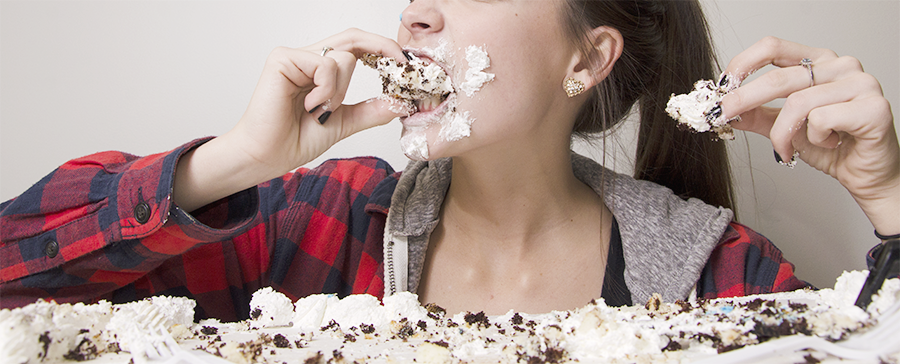Psychology and nutrition instructors offer their insight to compulsive eating
By Mike Abell

The holidays are coming up, and so is everyone’s calorie intake. This holiday season the average person in the United States will gain anywhere from five to seven pounds due to compulsive eating.
Psychology professor Diane Kappen said compulsive eating is now almost considered physiological.
“Instead of thinking deep psychological problems, they’re finding more and more that it is the way people are setup physiologically, because the hormones that you should have to stop you from eating aren’t there,” said Kappen.
Environmental influences around the holidays could also contribute to weight gain, for example the increased availability of food. Also, drinking around the holidays could be a contributing factor.
“I think it is because people just enjoy the food, and enjoy the company that they are with, they may drink more, which causes a weight gain as well and you don’t stop because the food is always there.” said Kappen.
It is almost no surprise that the most common New Year’s resolution goal is to lose weight, especially after the massive consumption of food during the months prior to New Year’s Eve.
As a social psychologist, Kappen said that she regularly sees a lot of people close to her who use the holidays as a way to make up for not eating during their regular schedule. She believes that it is a common habit for many of the students at the college.
“So some people make it their New Year’s resolution to lose all that weight and try to exercise and some people don’t. And so they keep that five to seven pounds,” said Kappen.
Barb Able, general nutrition instructor, offered some tips on how avoid compulsive eating this time of year.
“That month between Thanksgiving and New Year’s Eve is really hard to maintain a healthy eating style. But what you should never ever do is [go to] a party hungry,” said Able. “Always try to have a light snack before you go whether it’s a piece of fruit or just half a sandwich. Otherwise, it tends to be counter-productive because you’ll overeat when you get to the party.”
Able said this is one of the only times of the year that people can indulge themselves, so it’s okay to do so. But she again offered some of her advice for those that do.
“You know sometimes it’s the only time of the year where we get those foods. But what I recommend is go to a smaller plate. If you’re hosting the party don’t use huge platters. Also, kind of scope out the buffet table before you get in line. I would try to fill my plate with vegetables and maybe a tablespoon of the yams and mashed potatoes.”
Holiday plate averages
- 2.4 billion lbs of sweet-potatoes produced in 2012
- 16 lbs of turkey is consumed by the average American household
- The average Thanksgiving meal in America is around 2,500 calories
- On Thanksgiving California consumes the most turkeys
- The average American will gain 5 to 7 lbs in the months of November and December





















